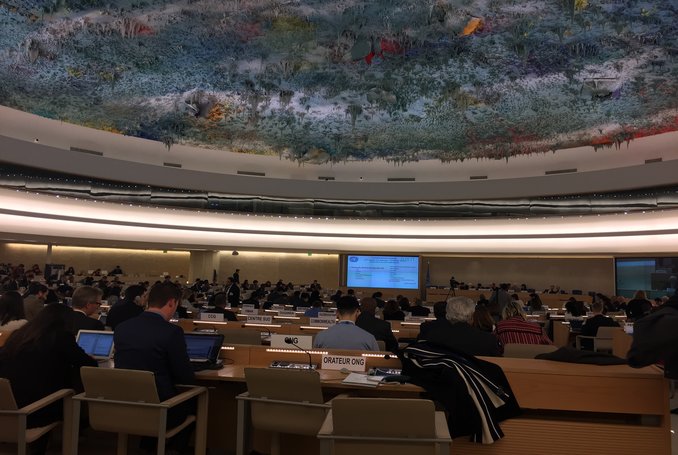
By Ramona Wadi
There is a major flaw which is overlooked when discussing the US withdrawal from the UN Human Rights Council (UNHRC). On one hand, it shows the collaborative efforts of Israel and the US to marginalize their human rights violations away from scrutiny. However, analyzing the departure within the limited framework of Israel and the US claiming “anti-Israel” bias also shields the international organization from scrutiny.
One can only speak of loss if either the US or the UNHRC contributed an action of significance, in this case, towards supporting Palestinians against Israeli colonial violence. In the absence of such dynamics, the US departure is merely a reflection of the impunity that exists at an international level, as well as the futility of articulating human rights from a platform that operates on different levels in order to maintain the status quo.
Are we expecting the UNHRC to act differently now that Israel’s greatest ally has departed the scene? Probably not. Agenda Item 7 has become another fixture that serves several interests which are, for the major part, incompatible with Palestinian aspirations.
Why are Palestinians expected to rejoice, or feel they have achieved a milestone, simply because there is a specific and permanent discussion at the UNHRC about Israel’s ongoing violations?
If discussions took place alongside political action to support Palestine, Agenda Item 7 would not have been disfigured into a farce to be manipulated at random. Putting Israel as a permanent agenda item is not enough and leaves room for exploitation of purpose.
Indeed, less fanfare about discussing Israel permanently and building an international collective effort to combat the hypocritical stances taken by the UN and its organizations with regard to colonialism would serve a better purpose. Yet the question begets itself. Where would the UN be without the collateral damage caused by colonialism?
Likewise, Agenda Item 7 serves other purposes than just highlighting Israel’s violations against Palestinians. Its impact is lost amid inaction for Palestine. If one removes its permanence, there is little that distinguishes the nature of Israeli criticism at the UNHRC from criticism elsewhere.
The formula employed by the international community is consistent and ultimately leads back to the two-state compromise. External decisions are being taken for Palestinians while the only options are between limited and forced acceptance.
If Agenda item 7 was as prestigious as it is made out to be, it would have operated from a framework that is independent of the obsolete requirements imposed upon Palestinians to appease Israel. Any genuine voices within the international community face perpetual censorship from the dynamics of a system that corrupts any initiative that might have contributed towards change.
With the US out of the UNHRC arena, business will continue as usual. But unless international institutions are scrutinized, the latest ploy will continue to be analyzed as a victory for Israel, while forgetting that the international system is geared towards constructing Palestine’s defeat, regardless of membership in the UNHRC, or the existence of Agenda Item 7. For a discussion of Israel’s violations to exist as an aftermath, it is also pertinent to note that colonial violence will continue to take precedence over human rights.
– Ramona Wadi is a staff writer for Middle East Monitor, where this article was originally published. She contributed this article to PalestineChronicle.com.







